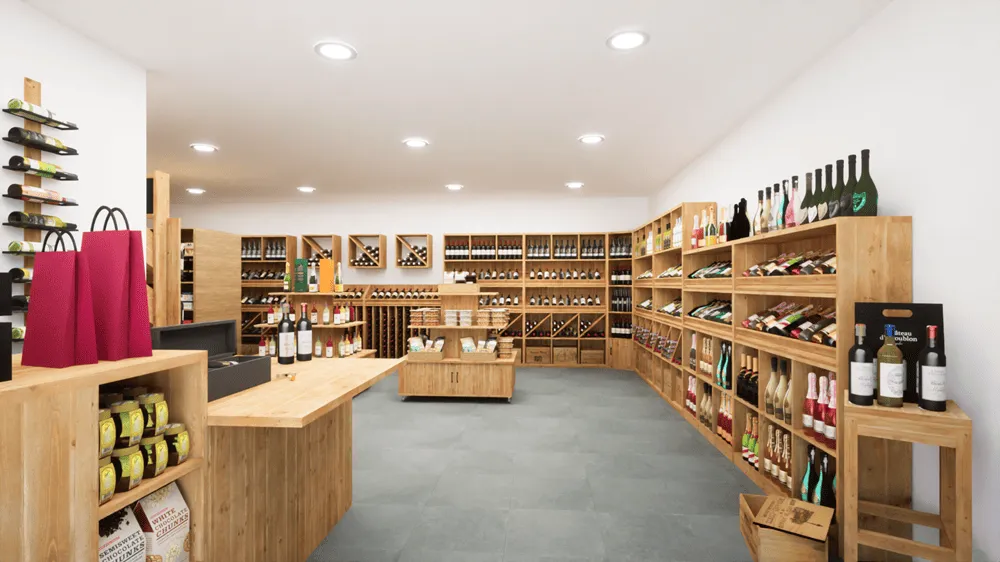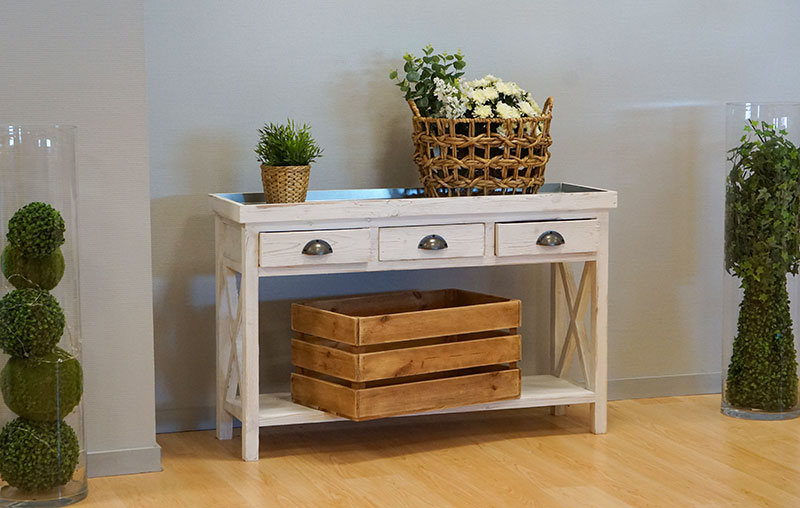Contact us on 05 46 94 15 94 Deliveries are available in France, Belgium and Luxembourg | Minimum purchase amount 500€ exc VAT
Menu
-
MenuBack
- Flash sales
-
Products
-
-
-
By profession
-
-
-
By profession
-
-
-
-
-
By product category
-
-
-
By profession
-
-
-
-
-
By product category
-
-
-
-
-
-
By product category
-
-
-
By profession
-
-
-
Business
-
- Destocking
- Second-hand
-
Customer projects
-
-
My layout project
-
Florists: How can you raise your customers' awareness of eco-responsible flower?
The floral industry, while beautiful and inspiring, doesn't come without its share of environmental impacts. While flowers brighten our lives and transform our
spaces, it's essential to recognize the environmental challenges associated with their production and distribution. Almost 85% of cut flowers sold in France are imported, and few consumers know the origin of the flowers when they buy them. In this article, we explore how florists can promote more environmentally-friendly choices to their customers, with a focus on seasonality, local provenance and organic, pesticide-free options.
Since 2017, the "slow flower" concept has been emerging as an ecological and responsible alternative, focusing on the sustainability and traceability of flowers. It proposes a more environmentally-friendly approach, encouraging local, seasonal and organic production.
Join over 2500 merchants who trust Tradis
Stay informed about our offers and professional advice
🕐 3 min of reading | Published on: 02/13/2024
Respect the seasonality of flowers
Encourage your customers to choose flowers that are naturally available during the current season, highlighting the fact that floral arrangements will last longer. Not only are these flowers fresher and more beautiful, but they also reduce the need for heated greenhouses and intensive farming techniques that consume a lot of co2. Indeed, flowers grown outside their natural season often require artificial growing conditions, involving the intensive use of energy, pesticides and fertilizers.
Here are a few examples of flowers to suggest according to the season: in spring, peonies, tulips and lilacs offer an explosion of color and freshness, perfectly suited to this period of renewal. Summer is the time when sunflowers, hydrangeas, delphiniums and yarrow captivate with their vibrant radiance, while autumn lights up with chrysanthemums, dahlias and grasses. In winter, mimosa, amaryllis and ranunculus add a warm touch to floral arrangements. Break the mould and stand out from the crowd with a unique offer based on these seasonal flowers.
.webp)
Favoring local flower growers
Promoting local flowers has a double benefit. It supports the local economy and reduces the carbon footprint associated with transport, since distances are reduced between the grower and the end consumer. By sourcing flowers from local growers, florists can guarantee freshness while helping to preserve local ecosystems. What's more, if you develop a partnership with local flower growers, you'll also have access to limited and differentiated offers that consumers won't find at all florists, and this will enable you to stand out from the crowd.
Some local flowers have certifications and labels that are recognized by consumers and therefore very interesting to promote in your store, such as the Fleurs de France label, which proves the French origin of the flowers and support for French horticulturists and nurserymen, or the AB bio label, which certifies that the flowers have been grown without the use of harmful pesticides or chemical fertilizers. These labels meet growing consumer demand for transparency about the origins of the products they buy, and this also applies to flowers. Promote them in your store so that customers can immediately identify the origin of the flowers on offer.
The Collectif de la fleur française is an example of an association that promotes French flower farms and florists committed to offering these flowers in their stores. You can join similar associations to highlight your eco-responsible approach and your commitment to your customers.
Make-to-order

Do you have a layout project?
If you wish to furnish your commercial space, our team will provide you with personalized support throughout your project.
Choose organic flowers without pesticides
Organic flowers, grown without the use of pesticides and chemical fertilizers, offer a healthier option for the environment and for the health of your customers. As a florist committed to an eco-responsible approach, encourage demand for organic flowers by displaying them on dedicated florist furniture. Organize for example a dedicated organic flower area within your store using a suitable florist display, and informing your customers about the advantages of these more environmentally-friendly choices. By choosing organic flowers, your customers are helping to preserve the health of ecosystems and reduce their environmental footprint. Beyond the environmental benefits, organic flowers also offer exceptional quality: their natural colors and fragrances are preserved, offering customers more authentic floral arrangements. What's more, free from pesticides and chemicals, organic flowers promise healthy indoor air, which is increasingly sought-after by consumers.
The choices we make as consumers have a direct impact on our environment. As florists, you have a unique opportunity to educate and inspire your customers to make eco-responsible choices. By highlighting seasonal flowers, local blooms and organic alternatives, you're contributing to a greener future for the flower industry.
.webp)
Our articles to explore the topic further
Join over 2500 merchants who trust Tradis
Stay informed about our offers and professional advice



































_11zon.webp)

